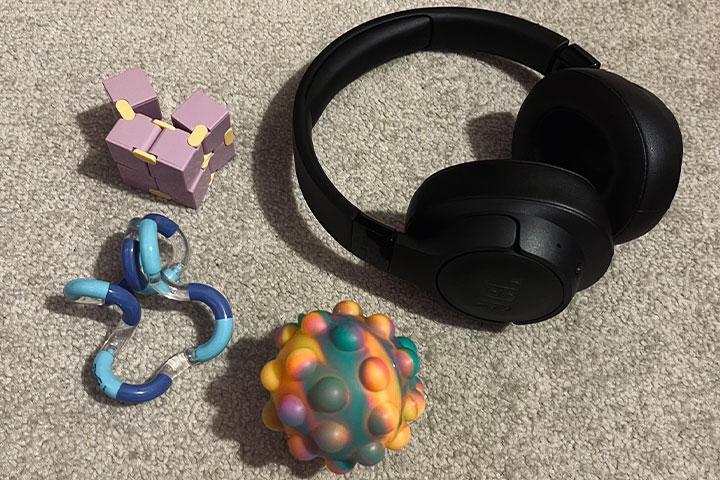Celebrating neurodiversity: what's it like to be a neurodivergent student?
- By:
- Anonymous
- Published
As a neurodivergent student, you might feel anxious about starting a university degree. Our student explains that with the right support and understanding, you can flourish at Bradford like they did.

Hi, I'm an autistic and ADHD student at the University of Bradford. I'm currently in my second year of study. In this blog, I'll share my experiences and tips for other neurodivergent students.
What was it like starting university?
Starting university brought a lot of mixed feelings. I felt anxious about many aspects, including making friends and being in a new environment.
At the same time, I looked forward to studying something I was interested in and gaining more independence. When I first started, I felt really supported by the teaching staff, and the Disability Service was a great help in reassuring me.
How did I prepare for university?

Before starting my course, I attended a Step Up to HE day. This experience gave me some of the skills and knowledge I needed to bridge the gap between A levels and university study.
As an added bonus, it also allowed me to practice my commute to university and become familiar with the campus. It gave me one less thing to worry about on my first day!
To make the transition as smooth as possible, I decided to live at home whilst studying at Bradford. I did this so I didn’t have to prepare for moving out. For me, it was a good choice as it meant fewer changes were happening at once. My home environment was familiar, and I felt safe there.
Support from the Disability Service
Before starting my studies, I applied for DSA (Disabled Students' Allowance), and I recommend anyone who qualifies for it to do the same. As a result of my application, I was provided with a laptop, printer, and assistive technology. The assistive technology included things like text-to-speech, essay planning, grammar checking, and revision software. This all helped to accommodate me and provide equal access to learning.
I was also offered weekly meetings with a specialist mentor who could provide support around study skills, academic writing, and student life.
The University offered a great package of support, too. I met with a disability advisor from the Disability Service to create a Learner Support Profile, which includes reasonable adjustments to ensure that I can access the course and remove barriers where possible. During my studies, I have been encouraged to contact the Disability Service if I require any help or advice. Their support so far has been helpful and reassuring.
The course I'm on involves me attending clinical placements as part of my learning. Before my first placement, I met with my Personal Academic Tutor to develop a Placement Support Agreement, which detailed reasonable adjustments for use on placement.
Advice and tips for other students

I advise other students not to let their neurodivergence stop them from anything they want to do. There is a way to overcome every barrier, and it’s okay to do things differently from other people!
If you are considering applying to Bradford or are currently studying here, have a chat with the University's dedicated Disability Service about what support can be put in place.
Remember that being neurodivergent is not a negative thing; it is simply a different way of thinking. It is easy to discuss the challenges of neurodivergence, but our countless strengths can often be overlooked. Try to identify your unique strengths and consider how you can use them creatively to help you thrive.
Support at Bradford
Here at Bradford, we understand that unfamiliar experiences can be challenging, and we'll do our best to help you settle in and get the best from your time at the University. Get in touch with the Disability Service to see what support is on offer to help you thrive.
